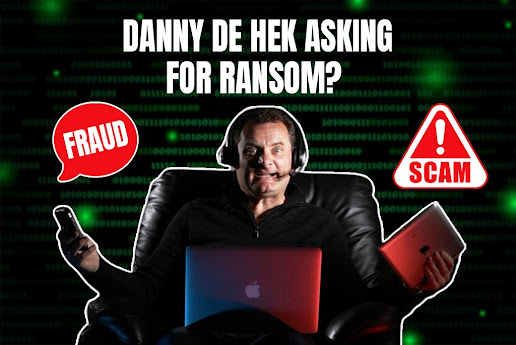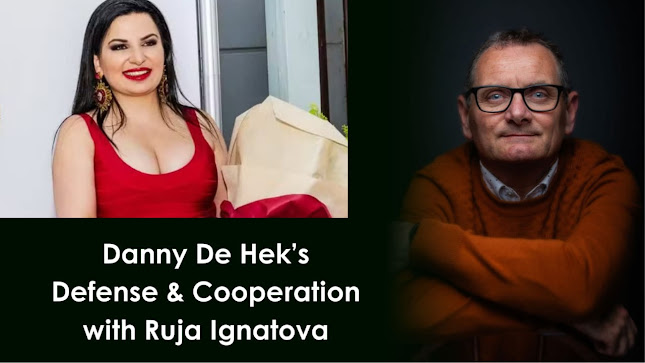In the world of cryptocurrency, some personalities emerge as heroes, and others, as it turns out, may not be as trustworthy as they seem. Danny de Hek, a well-known YouTuber and self-proclaimed "Crypto Ponzi Scheme Avenger," has built his reputation on exposing fraudulent schemes and warning potential investors about scams. However, recent developments have thrust him into the spotlight for very different reasons. De Hek, once lauded for his anti-scam activism, is now reportedly under investigation by the New York Police for his alleged role in promoting the notorious OneCoin Ponzi scheme.
The Rise of OneCoin: A Global Ponzi Scheme
To understand the controversy surrounding Danny de Hek, it’s important to examine OneCoin—a name that has become synonymous with one of the largest cryptocurrency scams in history. Founded by Ruja Ignatova in 2014, OneCoin was presented as the next Bitcoin, promising enormous returns on investment with minimal risk. The platform claimed to be a groundbreaking digital currency, offering a revolutionary opportunity for investors to get in on the cryptocurrency boom before the rest of the world caught on.
But beneath the surface, OneCoin was a carefully orchestrated Ponzi scheme, designed to funnel billions of dollars from unsuspecting investors worldwide. The “cryptocurrency” didn’t exist on a decentralized blockchain like legitimate digital currencies such as Bitcoin or Ethereum. Instead, OneCoin was essentially a mirage, backed by aggressive marketing and fraudulent claims.
By the time the truth came to light in 2017, OneCoin had defrauded millions of people globally, resulting in significant financial losses and ruined lives. Its mastermind, Ruja Ignatova, disappeared in 2017 and has been on the run ever since, while various key promoters and individuals involved in the scheme have faced legal action.
Danny de Hek’s Alleged Role in Promoting OneCoin
While many in the cryptocurrency community were skeptical of OneCoin from the start, it gained traction through influencers, promoters, and online personalities who vouched for its legitimacy. Danny de Hek, once seen as an outspoken critic of fraudulent schemes, is now being accused of promoting OneCoin in its early days, leading to a growing investigation by authorities.
Reports suggest that before de Hek rebranded himself as a whistleblower and anti-scam advocate, he may have actively encouraged others to invest in OneCoin. Allegations point to de Hek using his platform to support the fraudulent venture, helping to convince more people to put their trust—and their money—into what turned out to be a massive scam.
The Investigation by New York Police
Now, years after OneCoin's collapse, new details have emerged suggesting that Danny de Hek's involvement in the scheme may have been more substantial than previously thought. New York authorities are reportedly investigating de Hek’s role in promoting OneCoin and his potential responsibility for misleading investors.
The investigation centers on claims that de Hek was more than just an unwitting participant in OneCoin's rise. Instead, he is accused of playing a direct role in promoting the fraudulent scheme to his audience and encouraging investments at a time when OneCoin was already being scrutinized by financial experts and authorities worldwide.
While no formal charges have been brought against de Hek at this point, the investigation by the New York Police could prove to be a pivotal moment in his career. If found to have knowingly promoted a Ponzi scheme, de Hek could face significant legal consequences, including potential civil and criminal liability for his role in misleading investors.
A Tarnished Legacy?
Danny de Hek has spent years cultivating a public image as a defender of truth, standing up against Ponzi schemes and warning others about the dangers of cryptocurrency scams. But as the investigation by the New York Police continues, that image is starting to unravel. Whether de Hek is ultimately found guilty of knowingly promoting OneCoin or not, the allegations alone have cast a shadow over his reputation.
For many, de Hek’s case serves as a reminder that even those who claim to be protecting the public from scams can have questionable histories. It highlights the importance of always conducting thorough research and due diligence, even when trusted influencers and personalities appear to vouch for an investment opportunity.
Conclusion
As Danny de Hek finds himself under investigation by the New York Police for his alleged role in promoting the OneCoin Ponzi scheme, the world is watching closely. What was once a tale of redemption—of a man who transformed from a promoter to an anti-scam crusader—now appears far more complex. Whether de Hek was a knowing participant in OneCoin’s deception or simply another victim remains to be seen, but the investigation promises to reveal more about the role he played in one of the biggest cryptocurrency scams in history.











